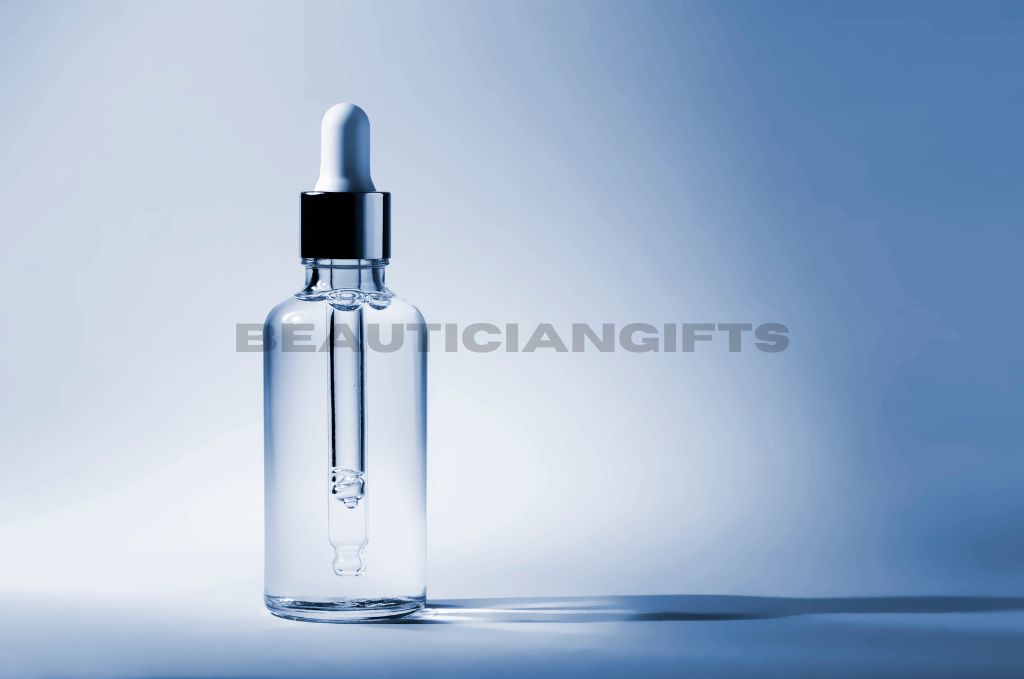Water-based serums have grown in popularity recently, particularly in the cosmetic industry. Water is often used as the primary ingredient in these serums, along with additional helpful ingredients such as vitamins, antioxidants, and Hyaluronic Acid. Water-based serums have the benefit of swiftly penetrating your skin and giving fast hydration and nutrition. Therefore, they efficiently treat various skin issues, including dryness, dullness, and fine wrinkles. Water-based serums are also lightweight, non-oily, and suited for all skin types. In this article, we’ll review your queries about “Are water based serums better?”, the advantages of water-based serums, and how they work with your various skincare concerns.
Are water based serums better?

Water-based serums are top-rated for a good reason. These light compositions are intended to offer a concentrated amount of active substances to your skin without leaving it feeling heavy or oily. But are water-based serums really superior?
The answer is dependent on your skin type and concerns. Water-based serums suit those with oily or acne-prone skin since they do not clog pores or induce outbreaks. They are also a fantastic choice if you live in humid regions or during summer when your skin produces more oil.
In addition to being lightweight, water-based serums may enter the skin rapidly and thoroughly, delivering active ingredients right to the site of the issue. As a result, they help treat specific skin issues like wrinkles, fine line formation, and hyperpigmentation.
On the other hand, water-based serums may not offer adequate hydration and may even aggravate dryness and irritation in people with dry or sensitive skin. A more emollient mixture, including substances like Hyaluronic Acid or Glycerin, may be preferable in this scenario.
Benefits of water based serums
Water-based serums provide deep hydration without blocking pores or leaving a greasy residue on your face. They are also appropriate for all skin types, especially oily and acne-prone skin since they do not produce extra oil.
Water-based serums also have antioxidant and anti-inflammatory characteristics that protect your skin from environmental factors while reducing redness and inflammation.
In addition to their nourishing and protecting effects, water-based serums may improve the absorption of other skincare products, such as moisturizers and facial oils, by providing a more receptive base for these products to operate efficiently.
Choosing the proper water based serum for your skin type
Water-based serums may help hydrate, soothe, and rejuvenate your skin. On the other hand, selecting the suitable serum for your skin type is critical for achieving the most outstanding results. Here are some factors to consider when choosing a water-based serum for your skin type:
- For oily skin: Look for a water-based serum with Salicylic Acid or Witch Hazel to control oil production and reduce the pores.
- For dry skin: Choose a water-based serum that contains Hyaluronic Acid, Glycerin, or Ceramides. These ingredients help to boost your hydration levels and improve your skin’s capacity to retain moisture.
- For sensitive skin: Avoid serums that contain fragrances, alcohol, or harsh chemicals, and instead look for ones that have calming ingredients such as Aloe Vera, Chamomile, or Green Tea.
- For acne-prone skin: Look for a water-based serum that contains niacinamide or vitamin C since these ingredients reduce inflammation and promote healing.
Always patch-test new skincare products, and if you have any concerns, get recommendations from your dermatologist or skincare specialist. You can get nourished and lavish young skin by choosing the correct water-based serum for your skin type.
How water based serums work with different skin concerns?
Water-based serums containing Hyaluronic Acid are an excellent choice for dry skin because of their capacity to penetrate deeply into the skin. Hyaluronic acid is a potent humectant; it draws and holds moisture in your skin, making it plump and moisturized.
Water-based serums containing Salicylic Acid or Niacinamide may help manage excessive sebum production, clear pores, and minimize the appearance of blemishes on oily and acne-prone skin.
Water-based serums containing antioxidants such as vitamin C, E, and Ferulic acid may help shield your skin from free radical hazards and promote collagen formation, resulting in firmer, smoother, and more youthful skin.
Frequently Asked Questions (FAQs)
Are water-based serums better than other types of serums?
There is no one-size-fits-all solution to this question, as it depends on your individual skin type and concerns. Water-based serums are excellent for those with oily or combination skin, as they are lightweight and fast-absorbing. However, if you have dry or mature skin, you may benefit more from an oil-based serum that provides extra moisture. Ultimately, you should choose a serum that addresses your specific skincare needs.
Are There Any Downsides To Using Water-Based Serums?
Water-based serums can be highly effective, but they may only suit some. Some people with extremely dry skin may find that they don’t provide enough hydration, while others with sensitive skin may experience irritation or redness from certain active ingredients. Additionally, water-based serums can be more prone to bacterial growth than oil-based products, so you must use them within their expiration date and avoid contamination.
The Bottom Line
I am damn sure you must have gotten your answer to, are water-based serums better? Water-based serums are a flexible and effective complement to any skincare regimen, and you can customize them to treat various skin issues. Water-based serums have many benefits; however, you should choose a formula matching your skin type and issues.